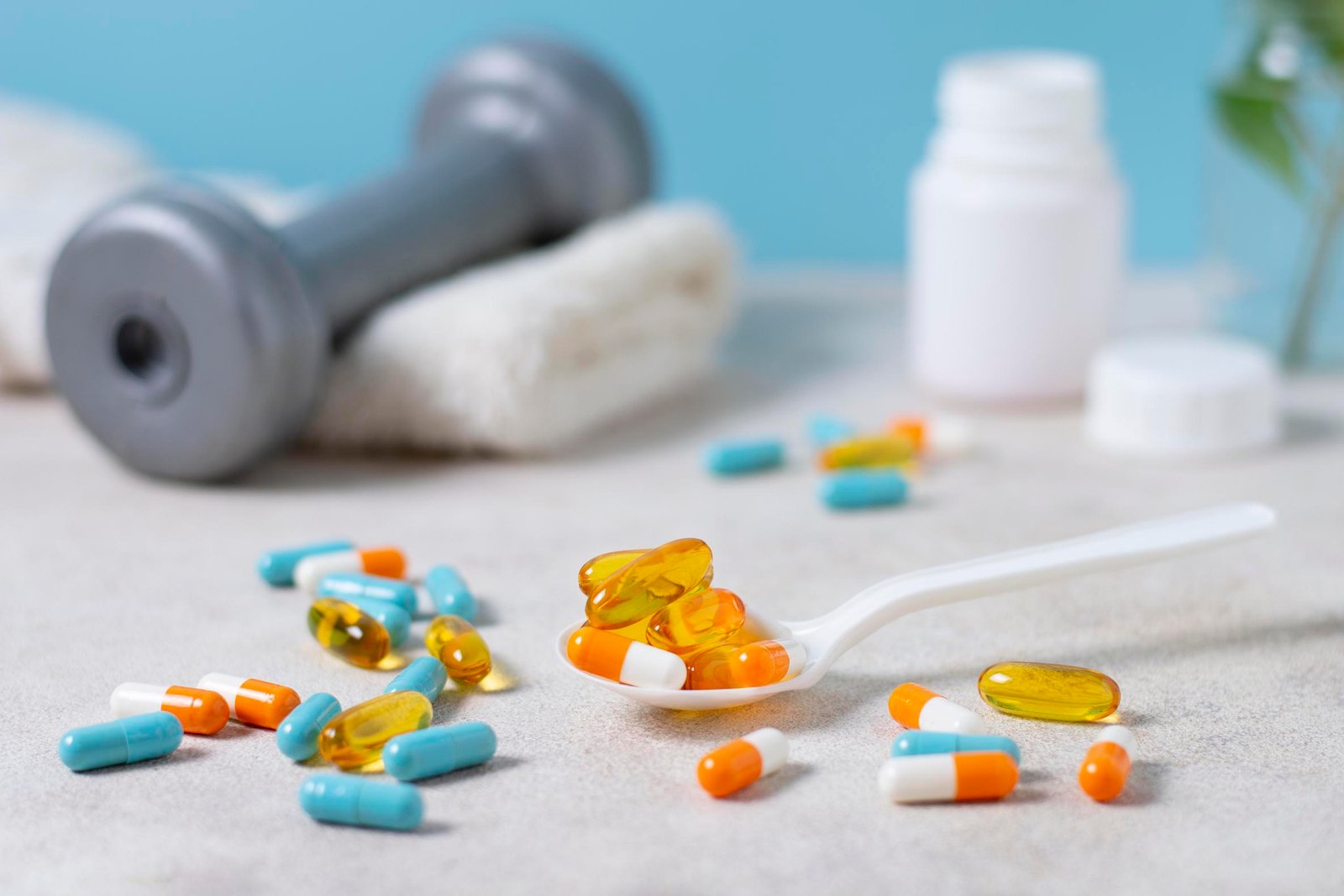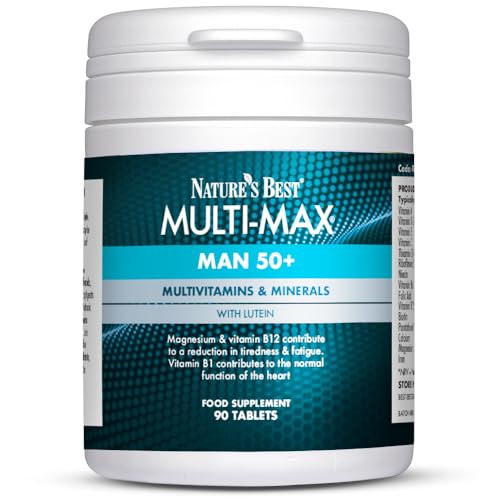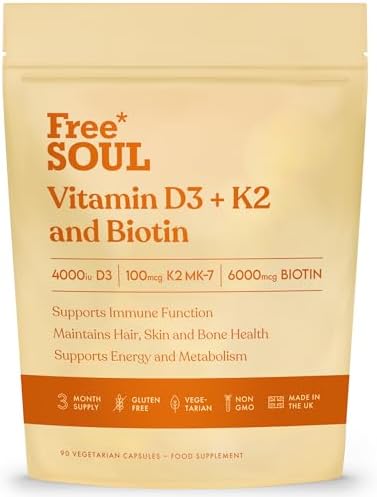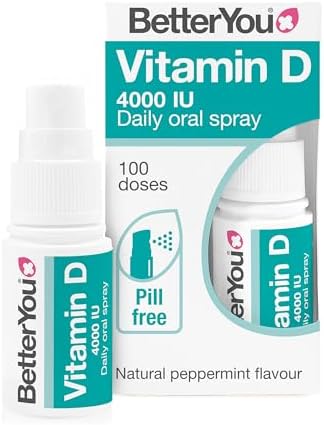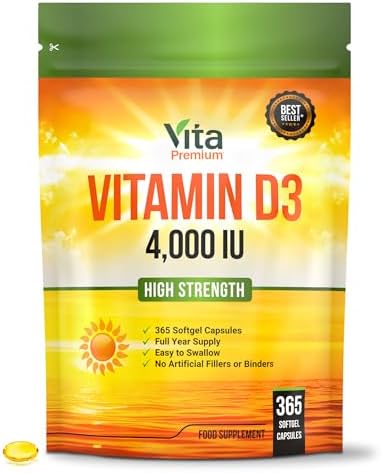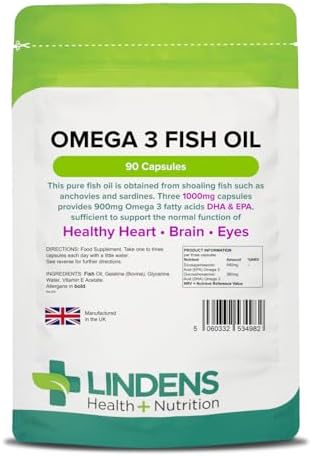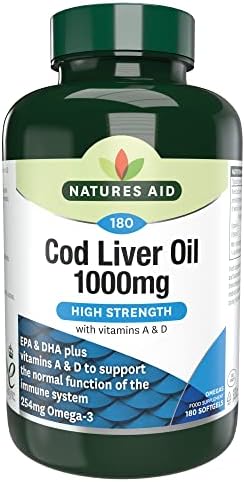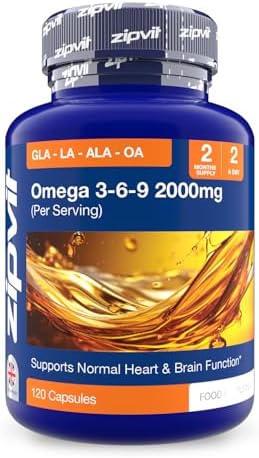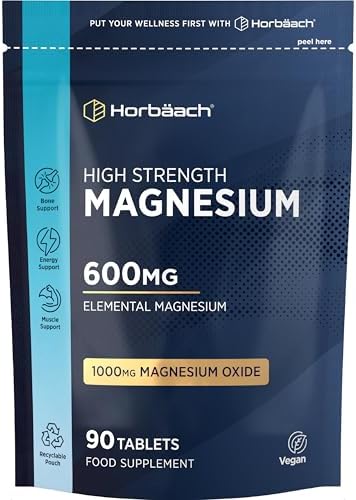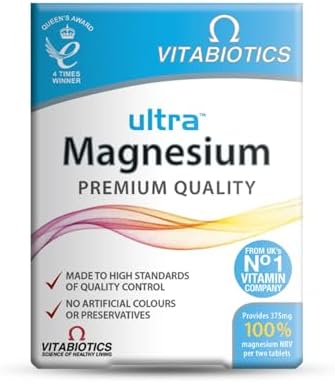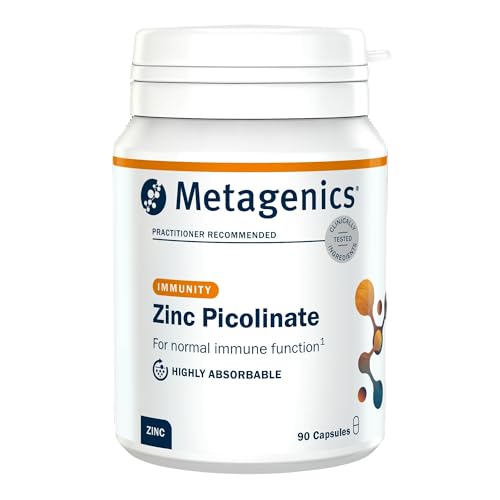This post contains Amazon affiliate links. As an Amazon Associate I earn a small commission from qualifying purchases. It may also contain eBay affiliate links.
Why Health Supplements Matter More for Men Over 50
As men get older, particularly those over the age of 50, their bodies undergo various physiological changes that can affect performance during physical activity, recovery and overall health. These are especially important if you want to maintain a healthy lifestyle and stay physically active.
These changes can manifest in different ways including reduced muscle mass, declining bone density, and a slowing metabolism. Additionally, active men in this age group often face challenges such as joint pain, fatigue, and increased susceptibility to chronic diseases. In response to these challenges, many choose to incorporate health supplements into their daily routines to help support their well-being and maintain an active lifestyle.
The significance of health supplements can be particularly pronounced for men over 50 who are committed to maintaining their physical fitness. Supplements can provide essential nutrients that may become harder to obtain through diet alone due to changes in appetite or digestive efficiency. For instance, vitamin D and calcium are crucial for bone health, while omega-3 fatty acids can contribute to cardiovascular health and joint function. Such nutritional support can be vital in mitigating age-related health concerns and enhancing overall vitality.
Moreover, health supplements can play a key role in helping active men over 50 recover from physical exertion. Ingredients like protein powders can aid muscle recovery after workouts, while adaptogens may help manage stress levels associated with busy lifestyles. As a result, finding the right supplementation strategy can be an invaluable part of an active man’s regimen, complementing a balanced diet and regular exercise.
In this blog post, we will delve into the top health supplements specifically tailored for men over 50. By understanding these supplements and their benefits, readers can make informed choices that support their health, vitality, and ongoing activities.
Let’s look at the changes in more detail and explore the supplements that can help address these changes:
1. Risk of Muscle Loss (Sarcopenia)
What happens: After the age of 40, men begin to lose between 3-8% of their muscle mass per decade. This rate increases after 60.
How can supplements help: Protein, creatine, HMB and particular amino acids help slow down the breakdown of muscle, aid muscle repair after exercise, and help to make progressive resistance training more effective.
2. Recovery Slowdown and Increased Inflammation
What happens: The inflammation that occurs naturally after exercise lasts longer, the turnover of collagen slows down, therefore tendons and joints take more strain.
How can supplements help: Omega 3s, vitamin C, Collagen, and specific antioxidants reduce the chronic inflammation and help us maintain healthier connective tissue.
3. Decline in Absorption of Nutrients
What happens: The production of stomach acid can reduce in older men. This reduces the absorption of vitamin B12, magnesium, zinc and iron.
How can supplements help: Taking vitamin B12, magnesium, zinc and iron supplements ensures sufficient levels for energy, nerve function and metabolism, even when your underlying diet is good.
4. Decline in Bone Density
What happens: After the age of 40, and particularly once we reach 50 men start losing bone mass. This increases the risk of bone fractures.
How can supplements help: Taking vitamin D with calcium, magnesium and vitamin K2 supplements helps support bone strength. This is especially effective if combined with progress weight bearing exercises.
5. Hormonal Shifts
What happens: Testosterone, growth hormone, and DHEA decline gradually over time after 50. This affects muscle density, energy and our mood.
How can supplements help: Although it is true that supplements can’t fully replace our hormones, nutrients like zinc, magnesium and vitamin D help us to maintain our optimum hormonal function.
6. Maintaining a Heathy Heart and Brain
What happens: Cardiovascular resilience and cognitive functions can dip as we age.
How can supplements help: Omega 3s, CoQ10, and some specific B vitamins help support our circulation, the heart muscle, and our brain cell function. This is especially important for endurance and mental focus.
7. Immune System Support
What happens: As we age our immune response system can weaken. This makes recovery from exercise or illness much slower.
How can supplements help: Probiotics, vitamin C, zinc, and vitamin D strengthen the immune systems defence and help our bodies adapt to the physical stress of exercise.
Now that we understand the reasons that supplements are essential for active men over 50, let’s look at the supplements in more detail.
Vitamin C
Vitamin C supports the enzymes that make collagen which is the main structural protein in our tendons, ligaments, skin and blood vessels. it is more important after we reach 50 because collagen production slows with ages which puts our joint cartilage, tendons and muscles under more strain as they struggle to repair.
Vitamin C is also a very powerful antioxidant. it neutralises free radicals that are produced during exercise and during every day metabolism. This helps speed our muscle recovery after exercise. It protects muscle cells, heart and blood vessels during and after exercise.
Vitamin C also supports the immune system. It stimulates the production of the white blood cells that help fight infection. This can help the over 50s to reduce the likelihood of picking up colds and infections.
Vitamin C helps with iron absorption particularly from plant foods and supplements. This is especially important after we reach 50 for active men as exercise can lower iron levels
Vitamin C helps keep blood vessels more flexible, this can lower arterial stiffness and reduce cardiovascular risk. As we reach 50 arteries stiffen naturally and this increases as we age.
Vitamin D: The Sunshine Vitamin
Vitamin D, often referred to as the “sunshine vitamin,” plays a pivotal role in maintaining health, particularly for men over the age of 50. As individuals age, the capacity of the skin to synthesize Vitamin D from sunlight diminishes, increasing the importance of adequate intake through diet or supplementation. This vitamin is crucial for several bodily functions, most notably bone health, immune function, and muscle strength.
Bone health is a top concern for aging men, as the risk of osteoporosis and fractures increases with age. Vitamin D facilitates calcium absorption in the gut which is essential for maintaining bone density and reducing the likelihood of fractures. Additionally, it fosters the remodeling of existing bone tissue, making it critical for overall skeletal health.
Beyond bone health, Vitamin D is integral to a well-functioning immune system. Research indicates that sufficient Vitamin D levels can enhance pathogen-fighting effects, bolstering the body’s defenses against infections. This is particularly relevant for men over 50 as they may experience a decline in immune responsiveness.
When it comes to muscle strength, studies have shown that low levels of Vitamin D can lead to reduced muscle function and increased risk of falls. As men age, maintaining muscle strength is vital for overall mobility and independence. Ensuring adequate Vitamin D intake can therefore be instrumental in supporting muscle health.
For men over 50, the recommended daily allowance of Vitamin D is generally set at 800 to 1000 IU, but some individuals may require higher doses, especially if they have low serum levels. Dietary sources include fatty fish, egg yolks, and fortified foods, though supplementation can be necessary for those with limited sun exposure. Vitamin D3 (cholecalciferol) is often recommended as the most effective form of supplementation. To effectively incorporate Vitamin D into a daily routine, consider discussing with a healthcare professional who can suggest appropriate dosages and monitor levels as needed.
Omega-3 Fatty Acids: Heart and Brain Health
Omega-3 fatty acids are essential fats that play a crucial role in maintaining heart health, supporting cognitive function, and managing inflammation, particularly for active men over 50. These fatty acids are primarily found in fish oil, with two prominent types, eicosapentaenoic acid (EPA) and docosahexaenoic acid (DHA), each contributing uniquely to health. EPA is renowned for its cardioprotective effects, which include reducing blood triglycerides and lowering the risk of heart disease. Conversely, DHA is vital for brain health, as it constitutes a significant portion of the brain’s structure and is instrumental in maintaining cognitive functions and supporting mental clarity.
The recommended dosage of omega-3 supplements can vary, but many health experts suggest a daily intake of at least 250-500 milligrams of combined EPA and DHA. For individuals with specific health conditions or those who are highly active, higher dosages may be beneficial. It is also essential to consult with a healthcare provider before starting any new supplement regimen, especially if a person is taking medications or has underlying health conditions.
When selecting high-quality omega-3 supplements, several factors must be considered. Look for products that are third-party tested for purity and potency, ensuring that they are free from contaminants such as heavy metals and pollutants. Furthermore, consider supplements derived from sustainable sources, as this supports environmental health alongside personal wellness. Combining omega-3 fatty acids with a balanced diet rich in fruits, vegetables, whole grains, and lean proteins can maximize health benefits, fostering not only cardiovascular and cognitive wellness but also overall vitality as one ages.
Please choose display type!Magnesium: The Vital Mineral
Magnesium is an essential mineral that plays a multifaceted role in overall health, particularly for active men over the age of 50. It is crucial for numerous bodily functions, including muscle contraction, energy production, and supporting sleep quality. As men age, the likelihood of magnesium deficiency increases, often due to dietary inadequacies or certain medical conditions. This deficiency can lead to various health issues, including muscle cramps, fatigue, and impaired sleep, making it imperative to address magnesium intake effectively.
For individuals over 50, the recommended daily allowance of magnesium generally hovers around 400 to 420 mg for men. However, this can vary based on individual health conditions, physical activity levels, and dietary sources. Rich food sources include leafy green vegetables, nuts, seeds, and whole grains, but many older adults struggle to consume adequate amounts through diet alone. Hence, a magnesium supplement can serve as an effective alternative to help meet these daily requirements.
Among the various supplements available, magnesium citrate and magnesium glycinate are popular choices due to their high bioavailability and absorption rates. Magnesium citrate is often recommended for those seeking a gentle laxative effect, while magnesium glycinate is favored for its calming properties that may aid in improving sleep quality. When considering supplementation, it is also important to take these minerals with food to enhance absorption and minimize gastro-intestinal discomfort.
To maximize the potential benefits of magnesium, active men should consider factors such as timing and dosage. Taking magnesium in the evening may help in promoting relaxation and better sleep quality. Consulting a healthcare provider prior to starting supplementation is advisable to ensure the appropriate form and dosage is chosen based on individual health needs.
Probiotics: Gut Health for Overall Wellness
Probiotics have emerged as a vital component of health, especially for men over 50, who may experience changes in gut health that can affect their overall well-being. Probiotics are live microorganisms that provide health benefits when consumed in adequate amounts. They play a crucial role in maintaining the balance of gut flora, which is essential for effective digestion and nutrient absorption. As men age, their digestive systems may become less efficient, leading to conditions such as constipation, bloating, and reduced nutrient uptake.
One of the primary benefits of probiotics is their ability to enhance digestive health. They do this by outcompeting harmful bacteria for resources in the gut, thus promoting a healthy microbial balance. Additionally, probiotics support immune function by modulating the gut-associated lymphoid tissue, which plays a pivotal role in the body’s immune response. This is especially important for older men, as aging often leads to a decline in immune system effectiveness.
Different strains of probiotics offer various benefits. For instance, Lactobacillus and Bifidobacterium are among the most researched strains, known for their positive effects on gastrointestinal health and overall well-being. Men looking to optimize their health should consider probiotics that target specific needs, such as digestive issues or immune support. When selecting a probiotic supplement, it is essential to choose products that contain a variety of strains and have verified CFU counts to ensure efficacy.
The recommended dosage of probiotics can vary based on individual health needs and specific products. Generally, a probiotic supplement should contain at least 1 billion CFUs per serving to be effective. It is advisable for men over 50 to consult healthcare professionals before beginning any probiotic regimen, allowing for personalized recommendations tailored to their health status and lifestyle.
Protein Supplements: Building and Maintaining Muscle Mass
As men age, particularly after the age of 50, maintaining muscle mass and strength becomes increasingly important for overall health and well-being. One effective approach to support muscle preservation is through the use of protein supplements. Protein is essential for muscle repair, growth, and maintenance, especially in active individuals. Numerous studies have demonstrated that adequate protein intake can help counteract age-related muscle loss, known as sarcopenia.
There are various types of protein supplements available, each offering unique benefits. Whey protein, for example, is a fast-digesting source that is rich in branched-chain amino acids (BCAAs), making it ideal for post-workout recovery. Casein protein, on the other hand, digests more slowly, providing a sustained release of amino acids, which can be beneficial when consumed before bedtime. Additionally, plant-based protein options, such as pea or rice protein, offer suitable alternatives for those who prefer or require non-dairy sources. These plant-based proteins can provide adequate amounts of essential amino acids when consumed in combination.
The recommended usage of protein supplements can vary depending on individual goals, activity levels, and dietary preferences. For most active men over 50, aiming for a protein intake of 1.2 to 2.0 grams per kilogram of body weight is advisable, especially if engaging in regular strength training or intense physical activity. Incorporating protein supplements into meals can be simple; they can be added to smoothies, mixed into oatmeal, or used in baking to enhance nutrient content. It is also essential to consider protein timing around workouts. Consuming protein shortly after exercise can enhance muscle recovery and promote muscle protein synthesis, ensuring that active men maintain optimal strength and muscle mass as they age.
Zinc: The Immune Booster
Zinc is an essential trace mineral that plays a crucial role in various biological functions, particularly immunological and hormonal processes. For men over 50, maintaining optimal zinc levels is vital not only for enhancing immune function but also for supporting testosterone production, which is often linked to overall health and vitality during the aging process.
One of the primary benefits of sufficient zinc intake lies in its ability to bolster the immune system. Zinc is known to help modulate immune responses, thereby reducing the likelihood of infections and illnesses. Studies have indicated that adequate levels of zinc can lead to shorter duration and severity of common colds, making it increasingly important for active men in this age group. In addition to its immune-boosting properties, zinc is also pivotal in testosterone synthesis. This hormonal balance is crucial for energy levels, mood regulation, and maintaining muscle mass, all of which can sometimes decline with age.
However, zinc deficiency can lead to numerous health issues. Symptoms may include frequent infections, hair loss, decreased appetite, and impaired wound healing. For men over 50 who are experiencing these conditions, assessing zinc levels becomes especially important. The recommended dietary allowance (RDA) of zinc is approximately 11 mg per day for adult men. However, this requirement may vary based on individual health factors, making it essential to consult with a healthcare provider before making any significant dietary changes.
When considering zinc supplements, various forms are available, including zinc gluconate, zinc acetate, and zinc picolinate, with the latter two being noted for their superior absorption rates. To optimize zinc absorption, it is often advised to take these supplements on an empty stomach, as food can inhibit its uptake. Additionally, avoiding high doses of calcium and iron at the same time as zinc may enhance its bioavailability, ultimately contributing positively to men’s health.
Coenzyme Q10: Energy and Heart Health
Coenzyme Q10, often referred to as CoQ10, is a vital nutrient that plays a pivotal role in the production of cellular energy. This compound is naturally synthesized in the body and is instrumental in the process of generating adenosine triphosphate (ATP), which is the primary energy carrier in cells. As men age, particularly those over 50, the natural levels of CoQ10 tend to diminish, which may lead to decreased energy levels and an increased risk of cardiovascular issues. Therefore, supplementation can be beneficial for maintaining energy and supporting heart health.
One of the most significant benefits of CoQ10 is its antioxidant properties. This nutrient helps to neutralize free radicals in the body, which can damage cells and contribute to various age-related conditions. Research indicates that older adults may particularly benefit from the protective effects of CoQ10 on heart health. It has been linked to improved heart function, reduced blood pressure, and enhanced overall cardiovascular wellness. For active men over 50, maintaining heart health is essential, making CoQ10 a valuable dietary addition.
When considering CoQ10 supplements, it is crucial to choose high-quality products that contain the active forms of the compound, such as ubiquinol. Ubiquinol is more readily absorbed by the body compared to its oxidized form, ubiquinone, making it a preferred option for those seeking optimal benefits. As for dosing, a common recommendation is to start with a daily dose ranging from 100 to 300 mg, although it is advisable to consult with a healthcare professional to determine the appropriate amount based on individual health needs.
Curcumin: The Anti-Inflammatory Powerhouse
Curcumin, a bioactive compound derived from turmeric, is increasingly recognized for its profound anti-inflammatory and antioxidant properties. It works by modulating various inflammatory pathways in the body, making it particularly beneficial for active men over 50. In this age group, chronic inflammation often contributes to the progression of several health conditions, including arthritis, cardiovascular diseases, and metabolic disorders. Therefore, incorporating curcumin into the daily regimen can enhance overall wellness and improve quality of life.
One of the most notable benefits of curcumin is its effect on joint health. Numerous studies have shown that curcumin can reduce pain and improve functionality in individuals suffering from osteoarthritis and rheumatoid arthritis, conditions that often afflict older adults. Furthermore, its ability to inhibit inflammatory markers can help to manage pain and swelling, allowing for increased mobility and physical activity.
In addition to joint health, curcumin has been associated with heart health benefits. It aids in maintaining healthy cholesterol levels and can improve endothelial function, which is essential for cardiovascular well-being. The antioxidant properties of curcumin also help to combat oxidative stress, which is a significant factor in age-related cardiovascular diseases.
To maximize the bioavailability of curcumin, it is advisable to consume it alongside black pepper, which contains piperine, a compound that enhances the absorption of curcumin in the body. Supplements that combine curcumin with piperine are widely available and often recommended. A typical dosage for effective results ranges from 500 to 2000 mg of curcumin extract, taken daily, but it is prudent to consult a healthcare provider before starting any supplement regimen.
Conclusion: Personalizing Your Supplement Routine
For active men reaching the age of 50 and beyond, maintaining optimal health becomes increasingly important. Individual health needs vary widely among individuals, making it essential to tailor supplement choices accordingly. Factors such as existing medical conditions, nutritional deficiencies, and lifestyle habits should be considered when selecting appropriate health supplements. This personalization ensures that each man can effectively address his unique health challenges and goals. These may include:
- maintaining muscle mass
- faster recovery
- keeping joints and bones strong
- protecting heart and brain health
- staying active and injury free for longer
Before embarking on any new supplement regimen, it is prudent to consult with healthcare professionals. A thorough medical assessment can identify specific areas where supplements may be advantageous, as well as highlight any potential interactions with medications already being taken. A healthcare provider can also help men over 50 navigate the sometimes overwhelming array of options available, directing them toward the most beneficial products based on their individual health profiles.
In addition to considering supplements, men should also evaluate their dietary habits and exercise routines. A well-rounded diet rich in vitamins, minerals, and antioxidants is crucial for overall health and can enhance the effectiveness of chosen supplements. Regular physical activity, tailored to one’s capabilities, further contributes to maintaining strength, flexibility, and cardiovascular health, which are particularly relevant for those over 50.
Throughout this blog post, we have explored various health supplements beneficial to active men aged 50 and older. However, the key takeaway is that supplementation is not a one-size-fits-all approach. By understanding personal health needs and consulting with professionals, men can optimize their supplement practices for better health outcomes. Taking proactive steps towards a personalized health journey empowers men over 50 to thrive physically, mentally, and emotionally as they age. Investing in one’s health now will yield lasting benefits for years to come.
This post contains Amazon affiliate links. As an Amazon Associate I earn a small commission from qualifying purchases. It may also contain eBay affiliate links.
